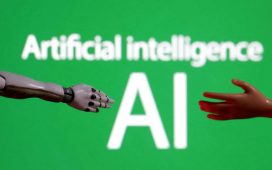Due to the rapid development of AI software and hardware technologies, AI has been applied in various technical fields, such as the Internet of Things (IoT), machine vision, autonomous driving, natural language processing and robotics. Most interestingly, researchers in the biomedical fields have been actively trying to apply AI to help improve analysis and treatment outcomes and, consequently, increase the efficacy of the overall healthcare industry.
The growth of interest is obvious, especially in the last five years, and continued growth in future can be forecast. The benefits that AI can offer to biomedicine were envisioned a couple of decades earlier. In fact, reviews have been published on the role of AI in biomedical engineering. More recently, new progress has been made in AI and its applications in biomedicine.
The goal for healthcare is to become more personal, predictive, preventative and participatory, and AI can make major contributions in these directions. From an overview of the progress made, we estimate that AI will continue its momentum to develop and mature as a powerful tool for biomedicine….
Breakthroughs have been made in natural language processing for biomedical applications. In the area of biomedical question answering (BioQA), the aim is to find fast and accurate answers to user-formulated questions from a reservoir of documents and datasets….
From ‘Artificial Intelligence in Healthcare: Review and Prediction Case Studies’, ScienceDirect









